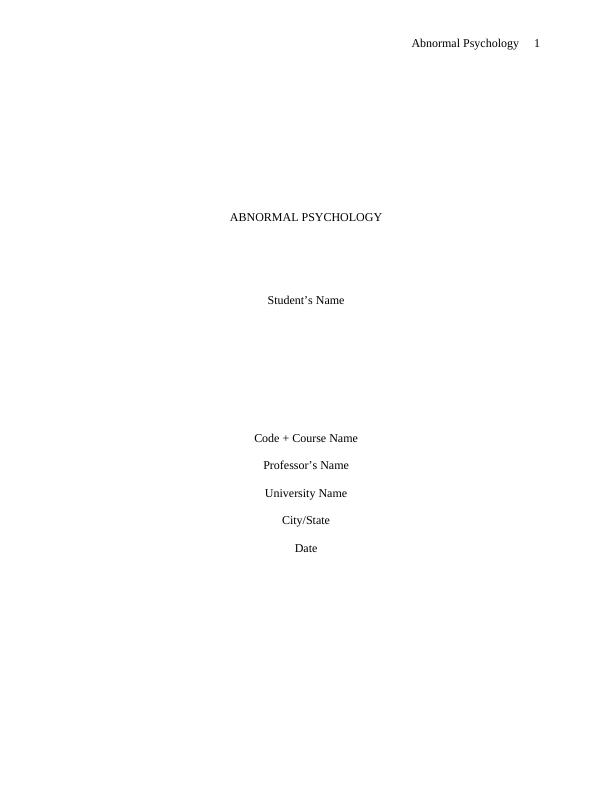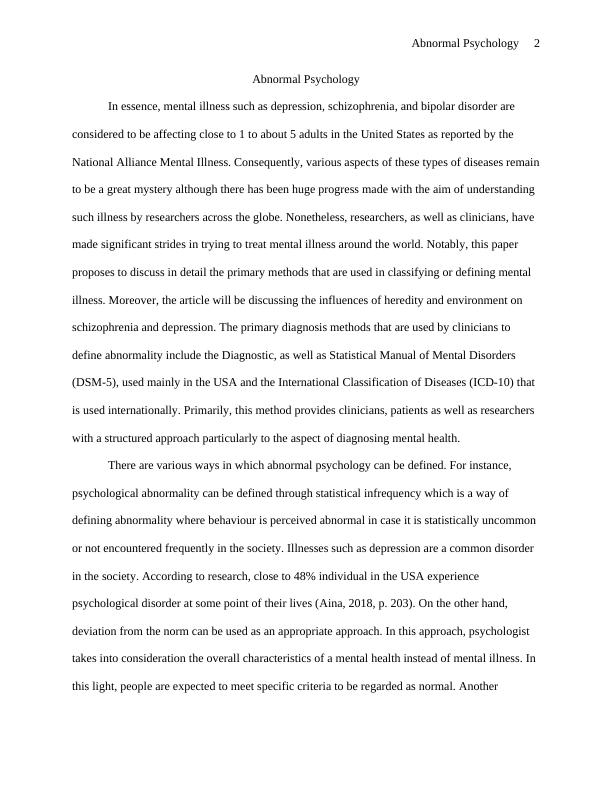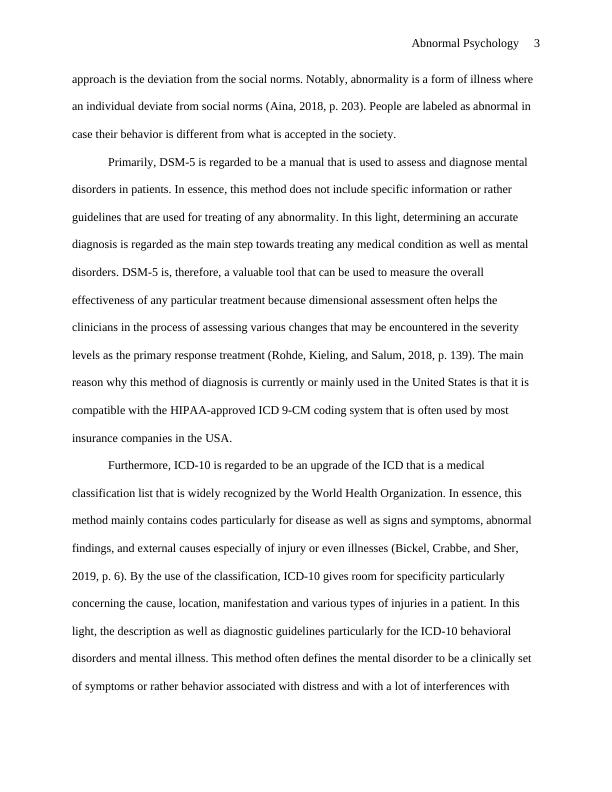Abnormal Psychology: Classification, Diagnosis, and Influences of Heredity and Environment on Schizophrenia and Depression
Added on 2023-04-24
8 Pages2194 Words119 Views
End of preview
Want to access all the pages? Upload your documents or become a member.
Psychology Test: Normality and Abnormality, Classification of Mental Disorders, Models of Atypical Behavior and Treatment Options
|9
|2309
|480
Schizophrenia: A Critical Evaluation of Aetiology, Clinical Picture, and Treatment Approaches
|10
|3429
|259
Diagnostic and Statistical Manual of Mental Disorder
|11
|2150
|20
Diagnosing Mental Illness Assignment
|11
|3231
|456
Mental Health and Illness: Causes of Depression and Approaches for Treatment
|7
|2046
|298
Psychiatric Diagnostic Classification Systems and Suboptimal Outcome for Patients
|7
|2180
|425



